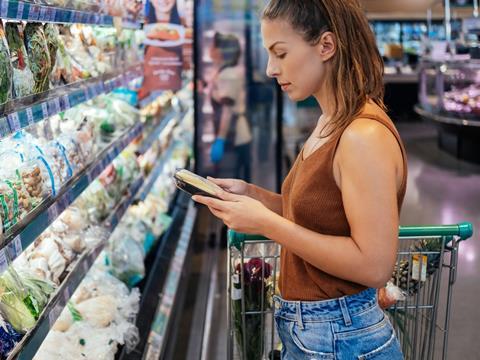
A coalition of non-profit industry and non-governmental organizations have formed the Alliance for Sustainable Packaging for Foods (ASPF), intending to work with global governments and regulators to pursue safe, sustainable, holistic, and harmonized food packaging regulation.
ASPF intends to maintain food safety and public health and keep the food supply chain’s environmental footprint low while developing new rules for sustainable food packaging.
The alliance emphasizes engagement with ongoing EU negotiations surrounding the Packaging and Packaging Waste Regulation, as well as Canada’s developments in packaging regulation, such as the P2.
Additionally, it has released a position paper analyzing peer-reviewed publications surrounding the trade-offs between food safety and packaging.
Its founding members include Aneberries; Canadian Produce Marketing Association; FMI – The Food Industry Association; Fruit South Africa; Frutas de Chile; International Fresh Produce Association; National Milk Producers Federation; National Council of Farmers Coops; National Wooden Pallet and Container Association; North American Meat Institute; Organic Trade Association; Reusable Packaging Association; STOP Foodborne Illness; U.S. Dairy Export Council; and Western Growers Association.
“When discussing the future of packaging, food safety and quality, and reducing food loss and waste are non-negotiable,” said Max Teplitski, PhD., IFPA chief science officer and chair of ASPF. “Members of ASPF are clear: we are committed to significantly reducing packaging waste, just not at the expense of food safety. We will work hard with the regulators and policymakers around the world to do so.
“We must take into account the footprint of the entire lifecycle of packaging use while maintaining food safety and addressing phytosanitary concerns. The purpose of ASPF is to find opportunities for partnership across global stakeholders to create a holistic and harmonized approach to packaging regulation, which reflects and accounts for the key outcomes central to a sustainable food supply.”
Todd Hoff, executive vice president at the Reusable Packaging Association and vice chair of ASPF, continued: “Sustainable packaging solutions for food, such as reusable packaging, can also lead to superior product protection and temperature management performance, ensuring food quality and safety and reducing waste.
“The Reusable Packaging Association values our participation in this wide-ranging industry alliance to support the transformation to more circular reuse systems while upholding the highest food standards. We look forward to working with other industry leaders to demonstrate that packaging can be sustainable, cost-effective, and high-performing without compromising.”
Working groups are set to contribute to the alliance by implementing priorities and action plans centred around government relations strategies and approaches to advocating for compliant and pragmatic regulations. ASPF expresses its support for collaboration across value chains to achieve its goals.
A similar alliance, the Business Coalition for a Global Plastics Treaty, was formed by Ellen MacArthur Foundation and WWF back in 2022. Consisting of 83 international businesses across the plastics value chain, as well as financial institutions and NGOs, its founders sought to “form the basis for future policy engagements with governments” regarding the global plastic waste crisis.
Since then, the New European Reusable Alliance, or New ERA, has been formed in a bid to uplift reusable packaging as a substitute for single-use solutions.
Xampla, Notpla, Loliware, Traceless, MarinaTex, Zerocircle, and PlantSea have also founded the Natural Polymers Group. This coalition went on to advocate for the recognition of natural polymer materials as valuable assets in the fight against plastic pollution.
If you liked this article, you might also enjoy:
The L’Oréal approach to packaging sustainability
The way we talk about plastic needs to change – here’s how to get it right
What steps is Apple taking to make its packaging more sustainable?













No comments yet